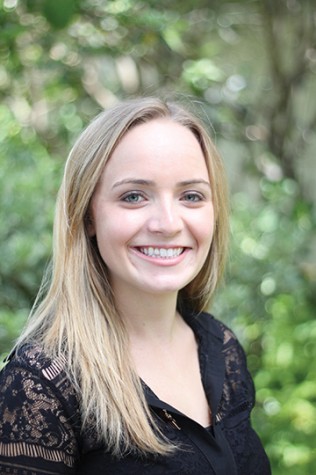College students are young minds waiting to be molded by the masters of education into productive members of society. They enter an institution of higher learning as unbiased blank slates, full of potential, eager to be taught in the ways of our professors. But sometimes things go wrong. Sometimes those experts, whom students trust to construct their life values, take advantage of these impressionable minds for personal gain. These teachers are the enemy. These people are brainwashers set on abusing their power for the purpose of indoctrinating America’s next generation.
At least according to some people, this may be true. The debate regarding an instructor’s right to share his or her personal political beliefs has surfaced periodically. Most recently, the National Association of Scholars conducted a case study at a small liberal arts university in Maine.
From its research, NAS released a report alleging the lack of political diversity in the faculty, along with the professors’ vocal opinions, lead to the liberal indoctrination of students and a hostile environment for those who don’t comply. However, they don’t think it was done on purpose. NAS claims the university’s officials try in no way to regulate their students’ beliefs. According to the story, overexposure to liberal ideologies makes it impossible for students to stray away mentally.
Although the report most likely has accurate findings, the notion that the inside of our heads are just play dough waiting to be messed around with by the nearest adult is questionable. Yes, I’m sure the university in the case study is predominantly liberal. But isn’t it more likely these students chose to go to a university where they will fit in politically? It seems a bit far-fetched and even overindulgent to give professors so much credit for students’ deepest beliefs. To even report such an observation does nothing but legitimize the whining of students who aren’t
comfortable enough with their own views to hear the other side of
the argument.
As a college student of the millennial generation, I enjoy when professors share their political views with the class. I see it as an opportunity to learn what the different stances are from someone who has been around for longer than me. I didn’t grow up particularly politically minded, but I did grow up opinionated. Because of that, I appreciate the chance to learn the way arguments for and against certain issues are constructed without fear of my own beliefs being compromised.
This might be a little too nerdy for most of my peers, but as an opinion writer, it’s what I’m good at. I believe teachers, just like the rest of us, have the right to express their opinions. Those who complain about hearing the opposition clearly just lack the ability to defend their own stance. If one feels strongly enough to label his or her professor’s teaching methods as unfair indoctrination, I don’t understand why he or she wouldn’t have the confidence to simply start some dialogue on the topic. Aristotle said “It is the mark of an educated mind to be able to entertain a thought without accepting it.” To learn from opposition is to understand the essential components of a debate while retaining the knowledge to make an educated decision for oneself.
Obviously, certain lines shouldn’t be crossed within a classroom environment. Hateful language or a requirement for students to agree with the professor in exchange for a passing grade is unacceptable. But if nothing unethical is occurring, it should be viewed as an opportunity to learn from a professor, not block oneself off to information because one disagrees with it.
Last year, San Diego State’s College Republicans released a “Preach or Teach” list calling out several professors for bias in their curriculum. Many of the professors on the “Preach” list were
not pleased.
SDSU rhetoric instructor and “preacher” Hedda Fish told U-T San Diego,“I made a few snide comments about Sarah Palin, but I teach an argumentation class. The students know my views and I am letting them express theirs. We have very good discussions.”
At the college level of education, facts, methods and dates are still useful in some sense, but they don’t complete a higher education. Students are there to learn to think critically and actively participate in the adult world around them. Gone are the days when teachers need to gently coax their youth through curriculum. We are responsible for our own education, and that includes learning to construct an argument about real issues, not run from a debate. We are adults now, and it’s time we acted like it.
Whether the university is viewed as leaning to the right or left, the fact is it has the right to do so. Students are in charge of their own paths, including where they choose to go to school and how they deal with conflict. Rather than labeling a challenge as unfair bias, students need to accept political differences as an opportunity for growth. If not, it is time to walk out of the classroom and leave the debate to those who can handle it.
— Assistant Opinion Editor Madison Hopkins is a journalism junior








